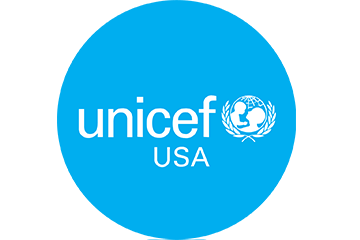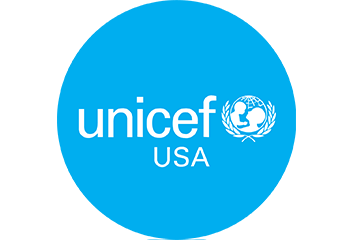Eight-year-old Daniyal’s family lost everything when floodwaters swept through their village in Pakistan’s Balochistan Province. He and his younger brother, Hakim, are still terrified by the memory.
“There was a lot of water, and everyone had to pack up and leave,” says Daniyal. “We borrowed a tent from a neighboring community, put it outside our home and put all our important things inside, including my school bag. We spent a few days on the road before we could return home. When we came back, we saw that our house had fallen, and the water took away the tent, with everything in it, including my bag.”
The only thing left was Daniyal’s bicycle, tied tightly to a tree. “We have nothing now, except a borrowed charpoy [bed], that we put outside our house,” he says. “That’s where we live now.”
Protecting the mental health of children devastated by Pakistan’s historic flooding is a UNICEF priority
Across the country, families are struggling to survive, surrounded by devastation. Large parts of eastern Balochistan and Sindh provinces remain underwater. Homes, schools, water systems, public health facilities and roads have been damaged or destroyed, leaving children traumatized and cut off from the lives they once knew.
In all four provinces, UNICEF is scaling up lifesaving humanitarian assistance for families affected by the floods, leading response efforts in the areas of water, sanitation and hygiene (WASH), nutrition, child protection and education.
To help children get back to learning and regain a much-needed sense of normalcy, UNICEF is working with Pakistan’s Government to repair damaged schools so they can reopen to students. Daniyal and Hakim recently returned to class in a safe, dry, temporary learning space set up by UNICEF, which has also supplied them with new backpacks filled with school supplies — and new hope for the future.
Children caught up in an unfolding natural disaster find comfort in the familiar routines of school
The kindness of teachers can make a world of difference in a child’s mental health
“The floodwater that came instilled fear in their minds,” said Abida Channa, a teacher at the school. “Maybe this is their first time experiencing a disaster. And then there were all the collapsed buildings. This can really affect children.” UNICEF is working to reach children and caregivers with psychosocial support and services.
As of Sept. 28, there were 127 UNICEF-supported temporary learning centers operating in Sindh, Balochistan and Khyber Pakhtunkhwa provinces, reaching 10,380 children. UNICEF and partners have also pumped out and cleaned 40 schools in Balochistan, enabling 21,185 students to resume their education. Other children — some of whom have never been to school — are receiving support at UNICEF Child-Friendly Spaces, a protective environment stocked with learning supplies and recreational equipment where children can begin to heal from the trauma they’ve experienced.
“With this school, we will study and grow up to be something like a doctor or a boss,” Daniyal tells a visiting UNICEF staffer. “Just ilke you have studied and become so successful.”
Urge Congress to support children’s mental health around the world.
Top photo: Brothers Hakim, 6, and Daniyal, 8, return home after attending school at a UNICEF-supported Temporary Learning Center in flood-damaged Alla Dina Chinna village, in Balochistan’s Lasbela District, on Sept. 7, 2022. Pakistan’s historic floods have left 3.4 million children in need of assistance. © UNICEF/UN0701854/Zaid





